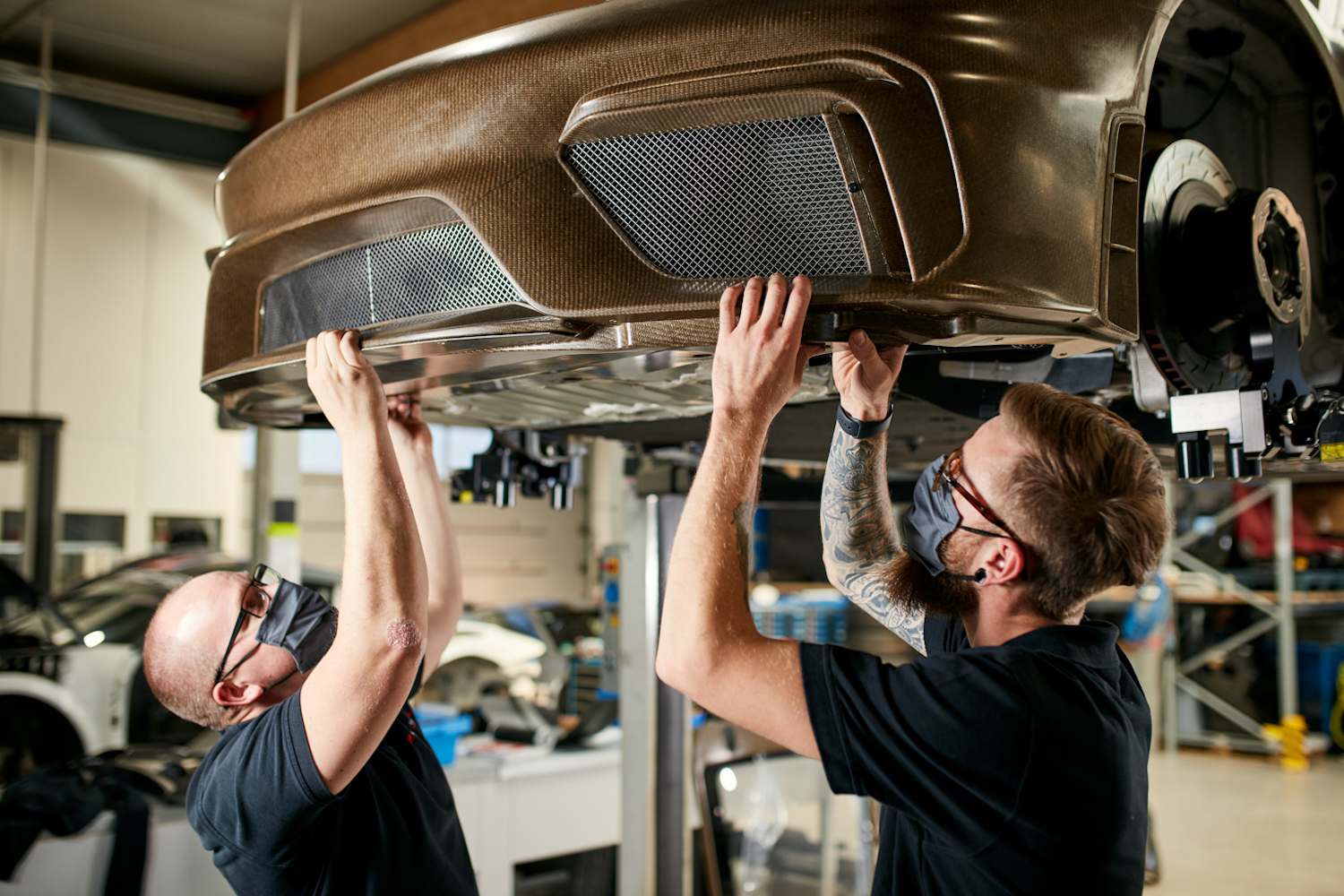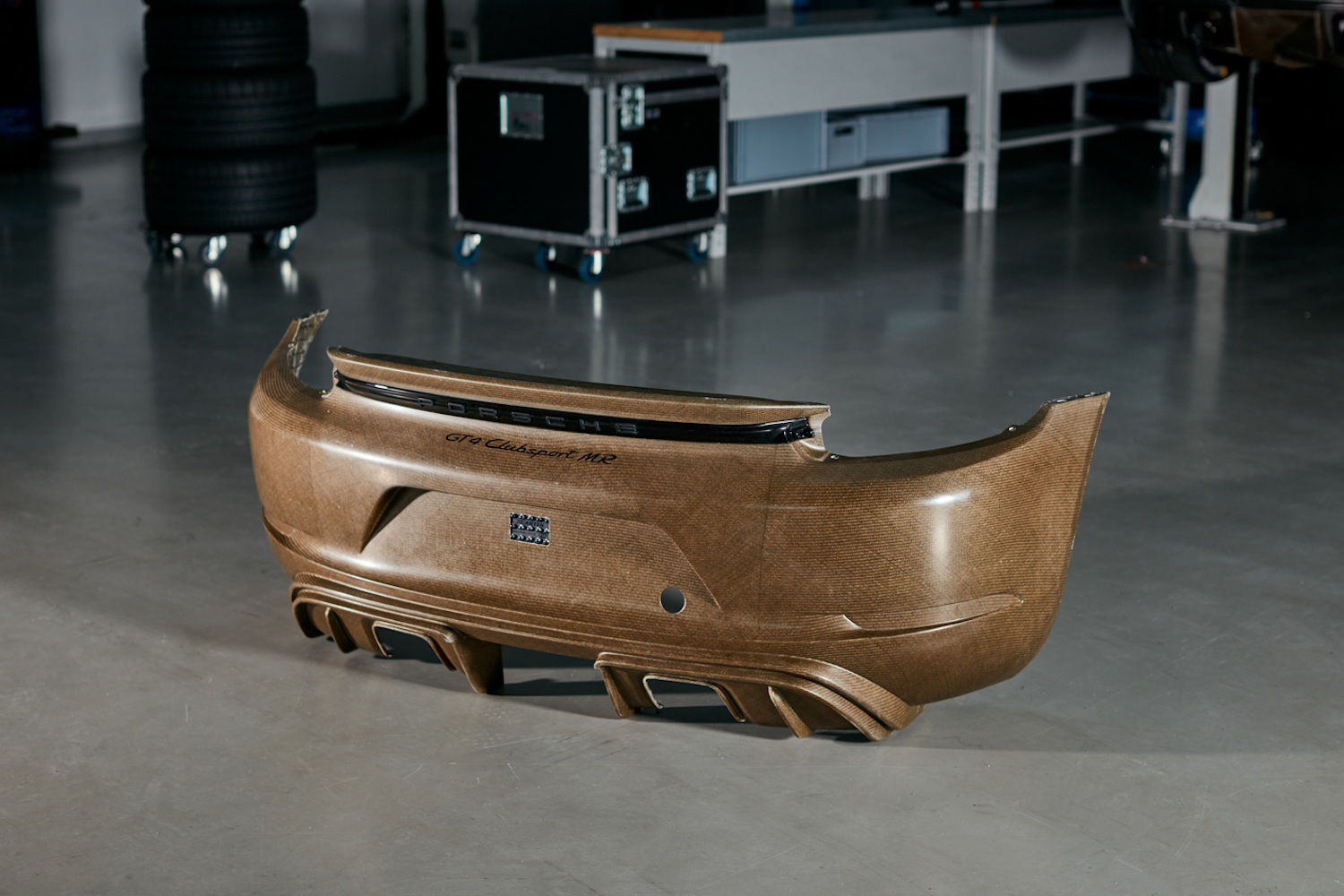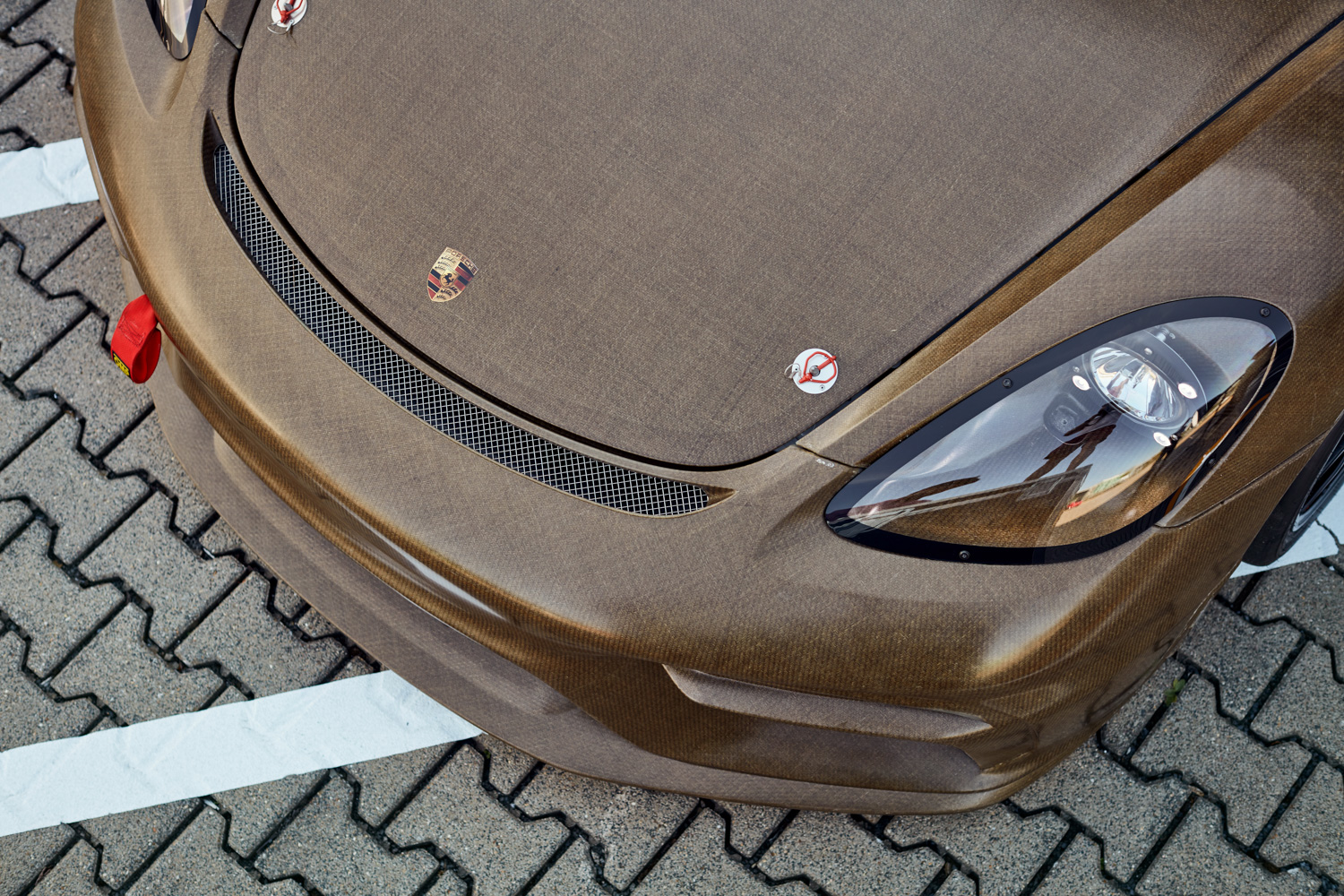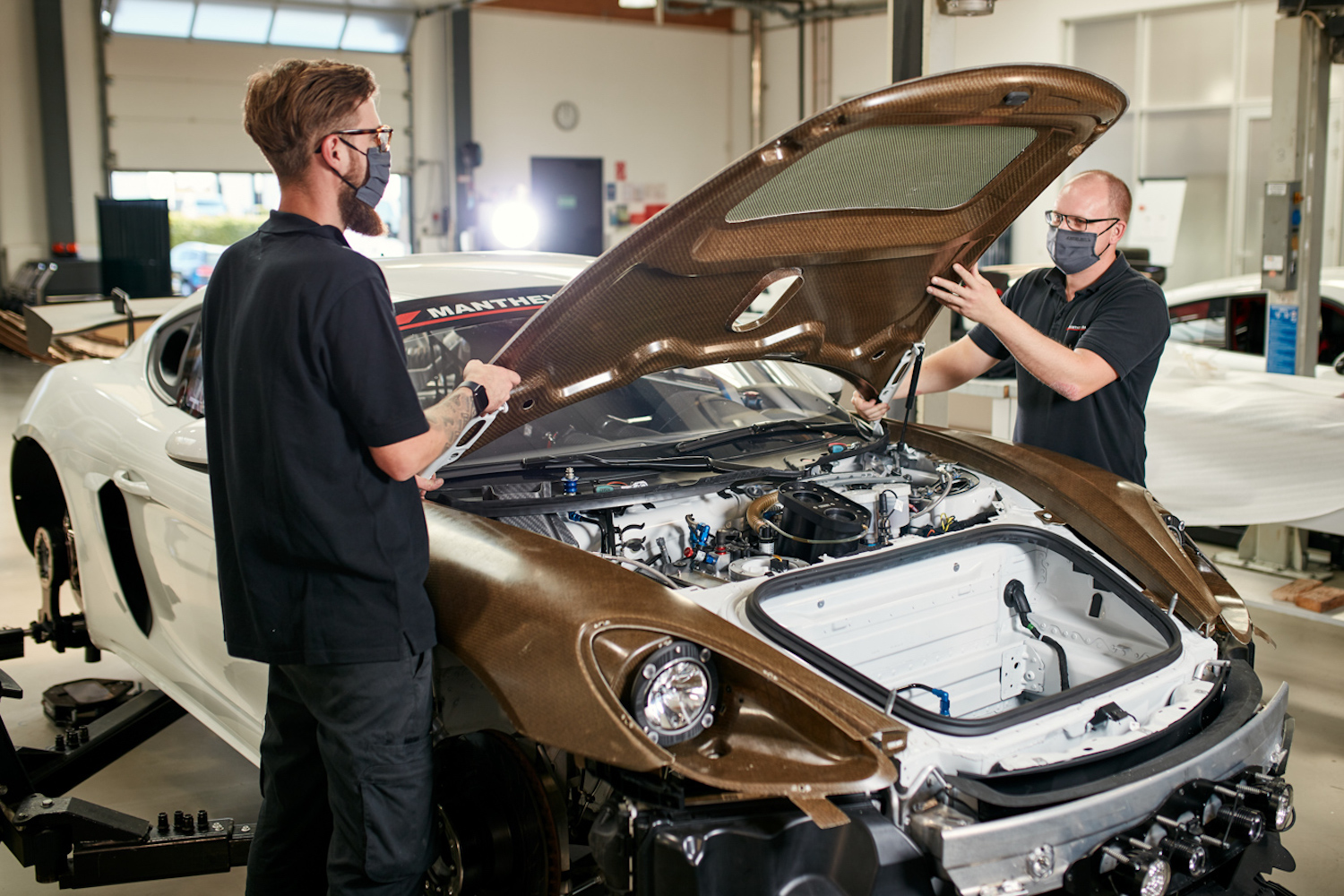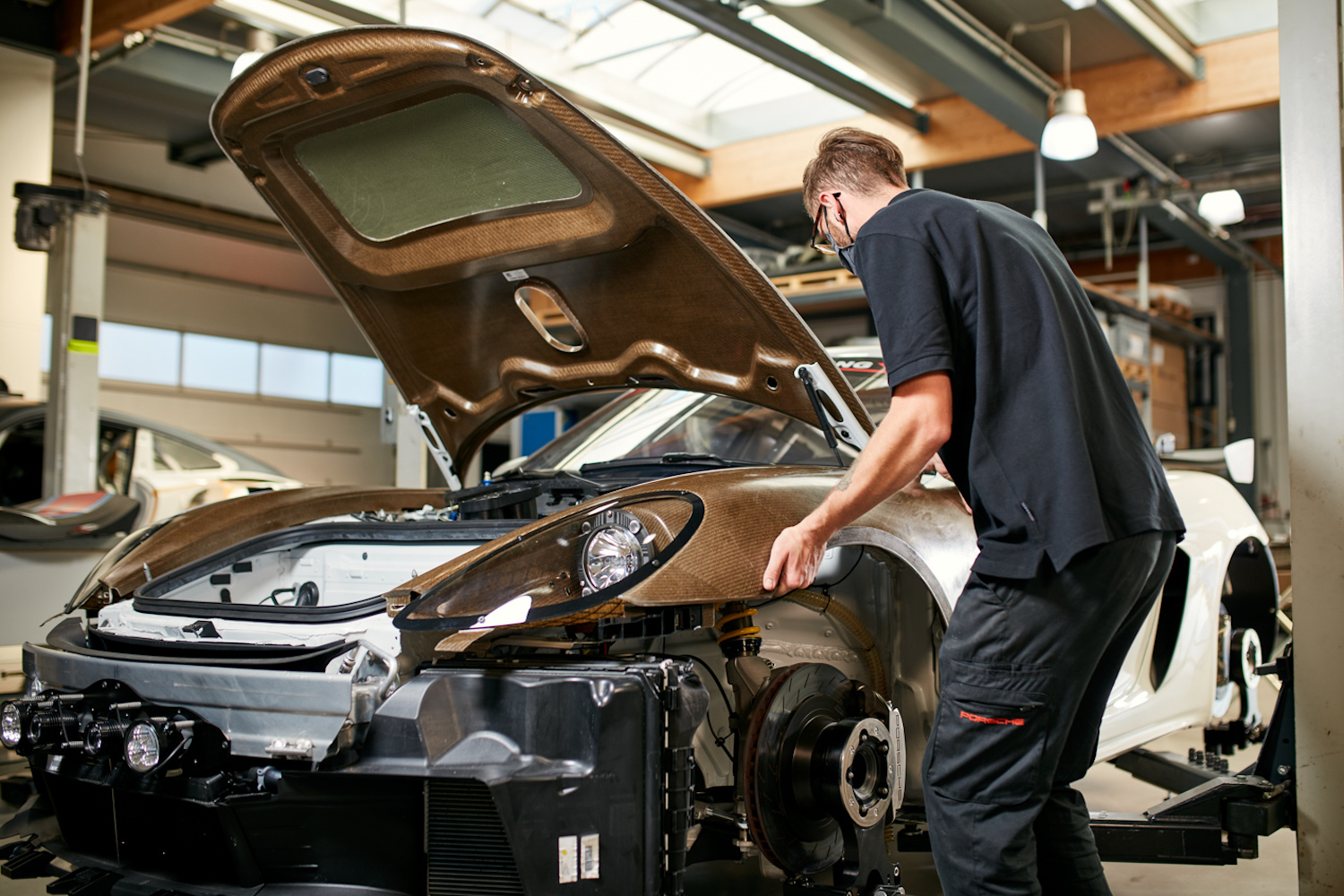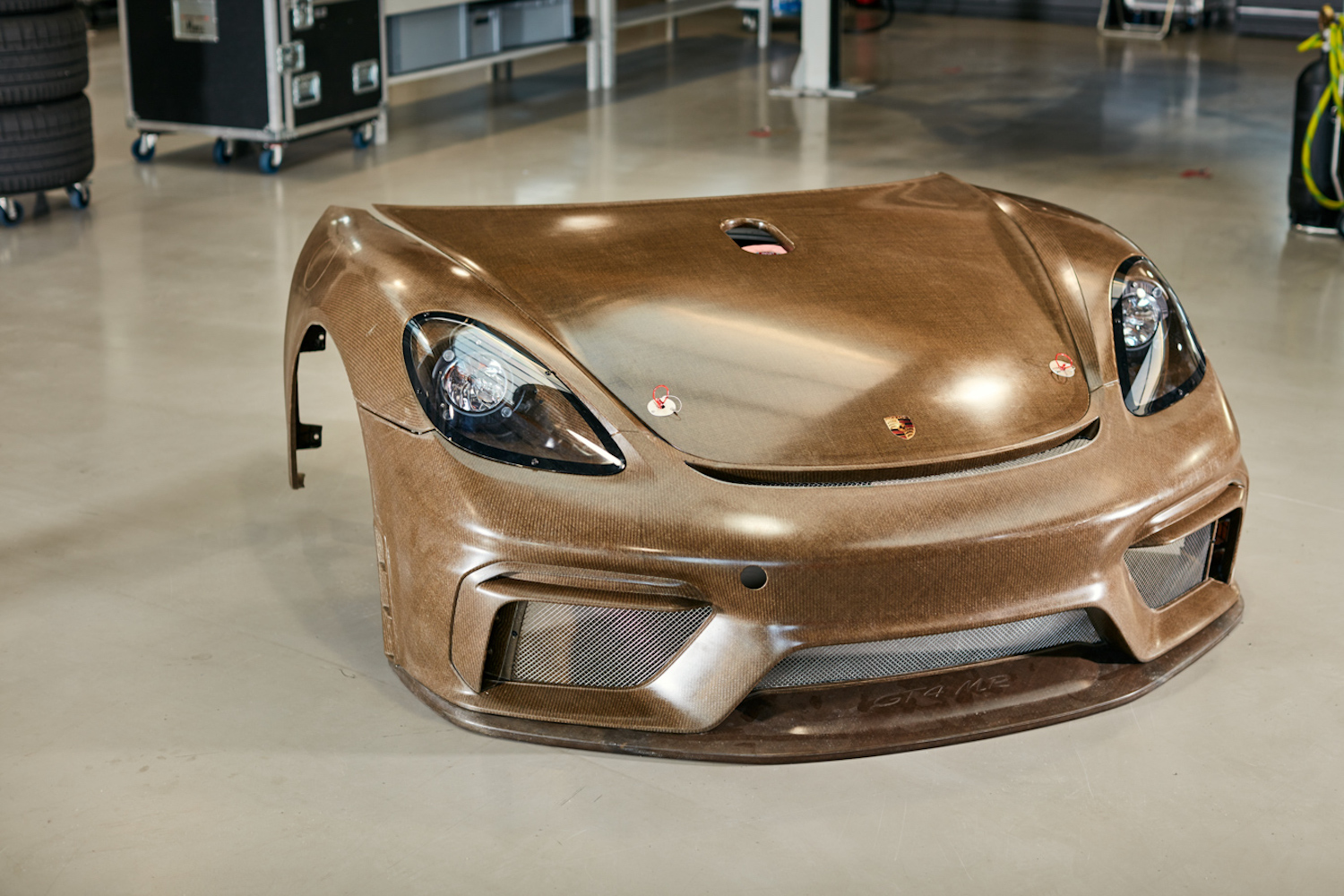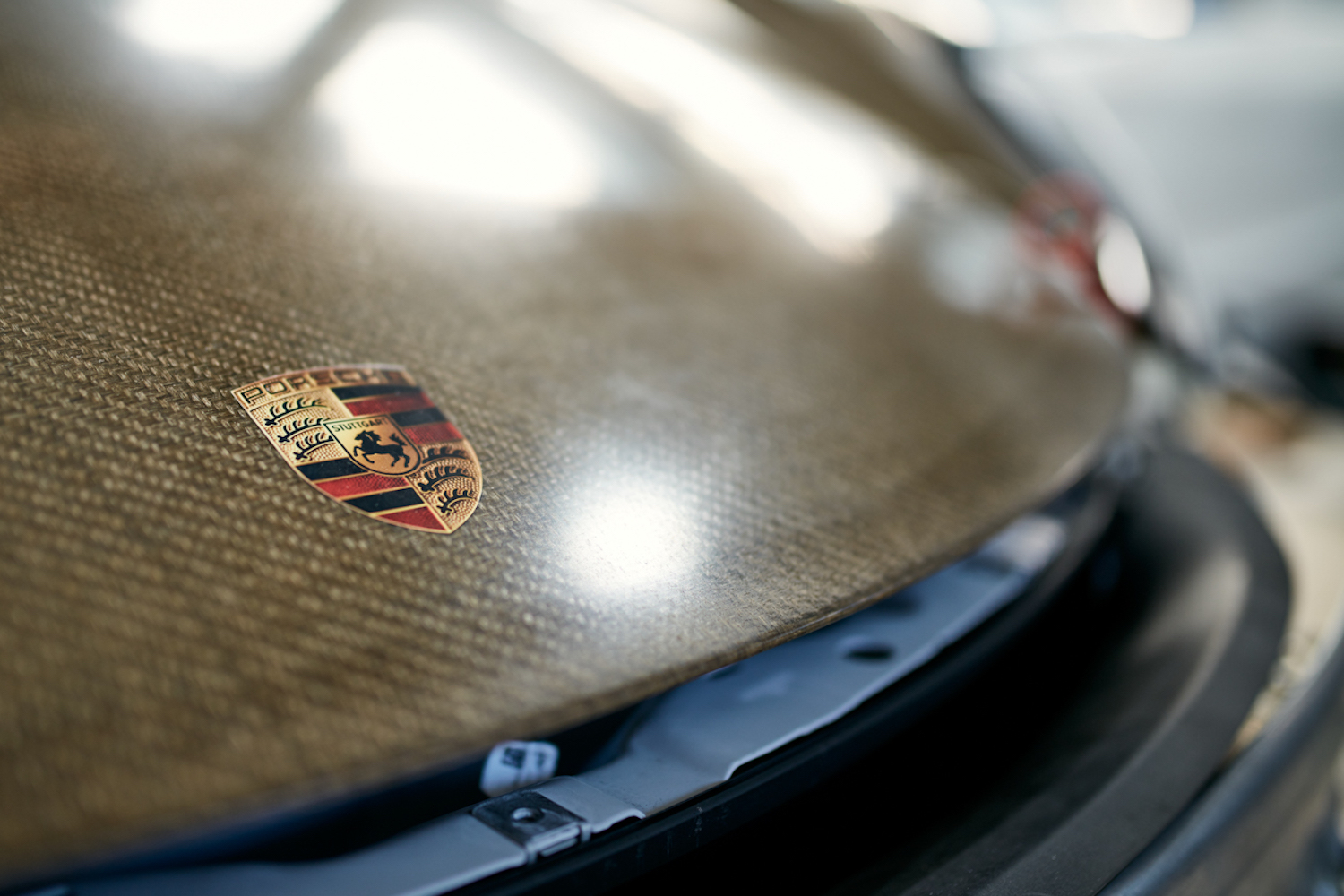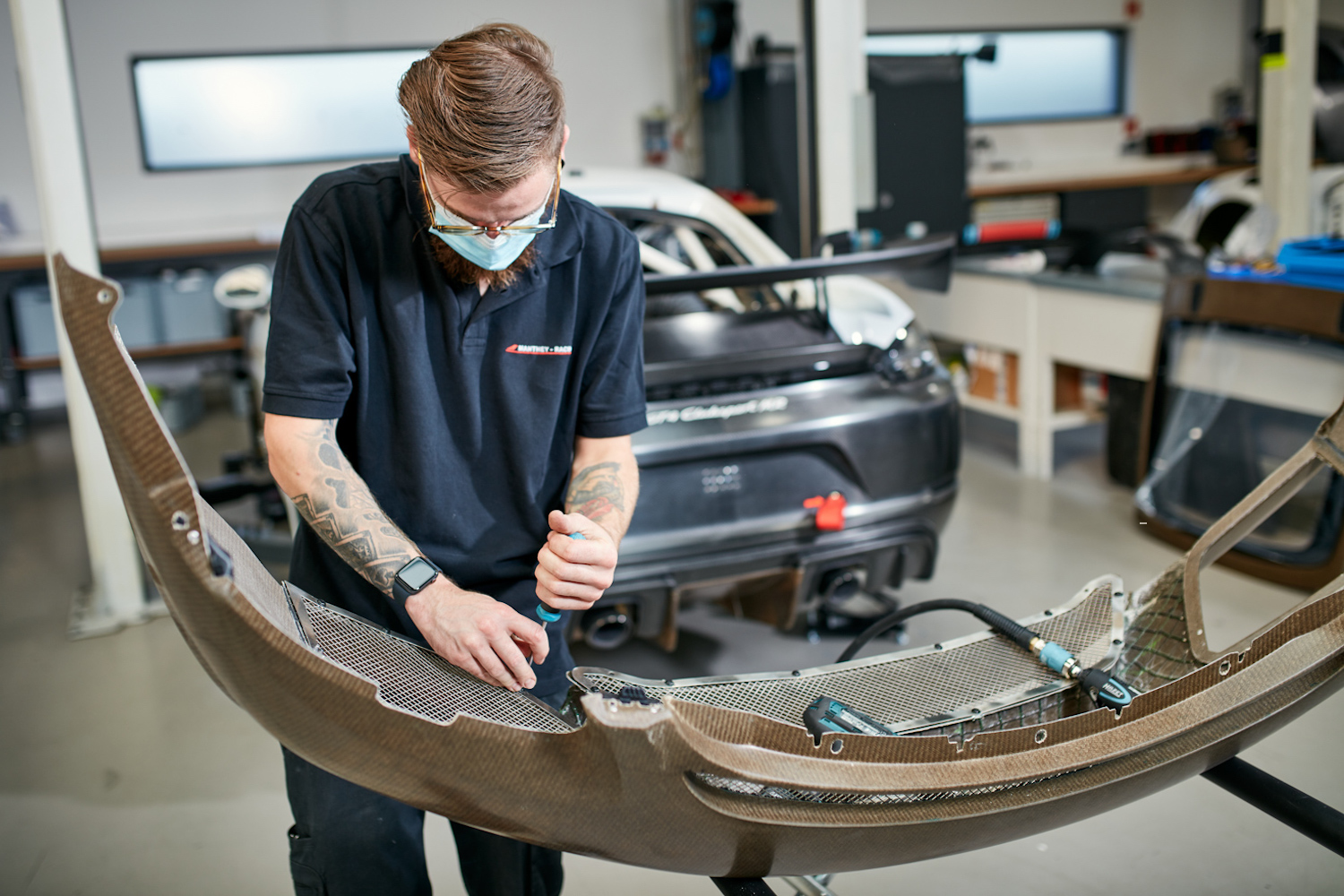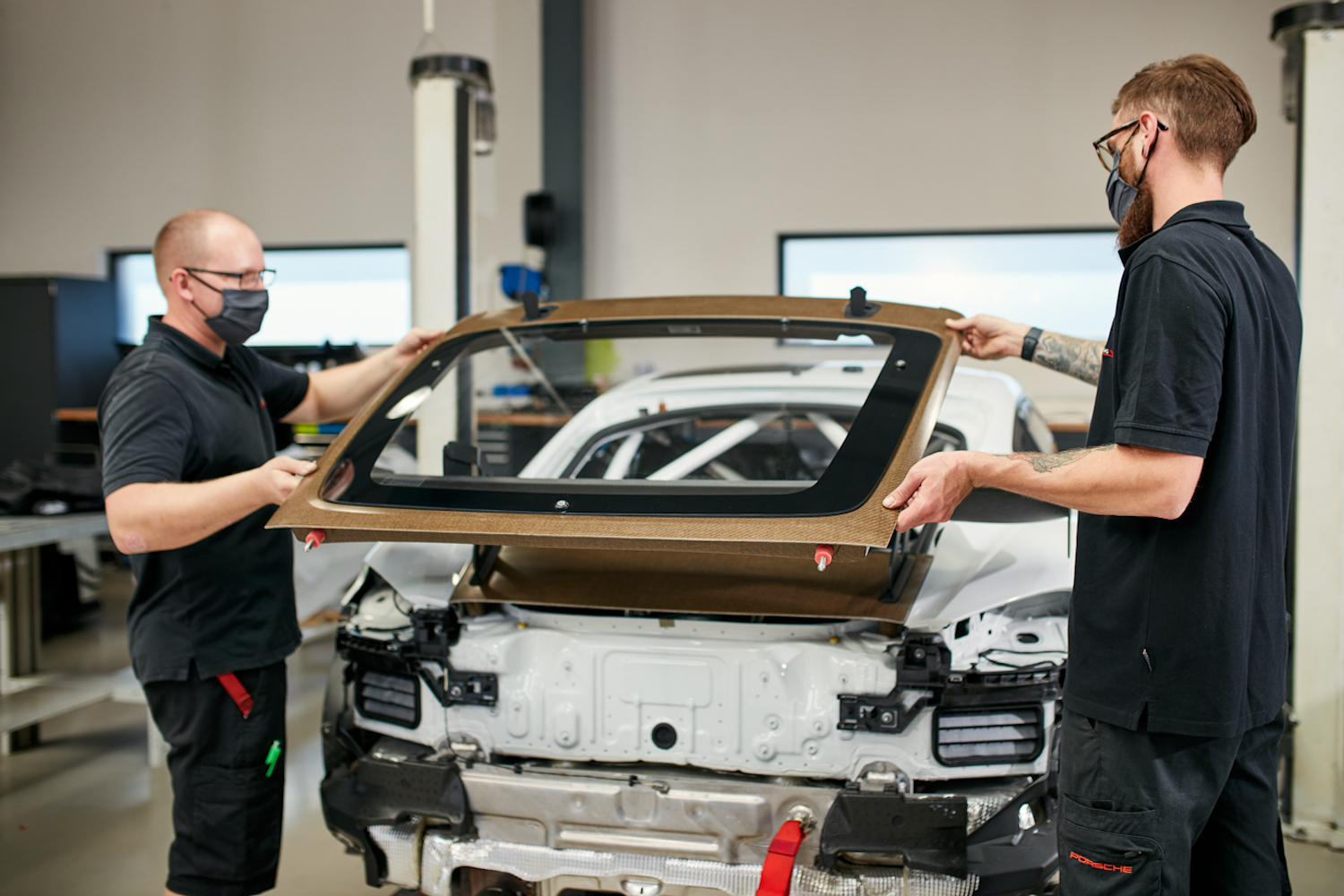Fancy a Porsche made of wood? Well, we can't quite offer you that but we can show you a 718 Cayman race car with a bodykit made from renewable materials, based on balsa wood.
Natural fibre reinforcements
This Porsche 718 Cayman GT4 Clubsport MR will take to the track at this weekend's Nurburgring 24hrs and its bodykit has been specially designed for the car, and made of renewable materials. Porsche experimented in 2019 with wings and door skins made of renewables, but now that has extended to the front and rear aprons, the front spoiler, front and rear lids as well as the mudguards and diffuser including the aerodynamic fins.
In terms of weight and stiffness, the recyclable natural-fibre composite materials of non-structural components share properties similar to carbon-fibre composites (CFRP) and, says Porsche, meet the same high safety and quality standards. As a bonus, natural-fibre composites can be manufactured more economically and with less energy.
Balsa wood and flax
Porsche has worked on the new materials with the help of the Federal Ministry of Food and Agriculture (BMEL), the Fraunhofer WKI and the Swiss company Bcomp. Farmed flax fibres serve as the basis of the sustainable natural-fibre composite material - without conflicting with food crops.
For the doors, light balsa wood serves as the core of the composite material. The sandwich construction is pretty much like the well-known resin transfer moulding (RTM) process used in the production of carbon-fibre components. For the rear wing, though, the layers are impregnated with epoxy resin and then baked in an autoclave. The newly added components made of natural-fibre reinforced plastic are created using a vacuum infusion process and contain Bcomp's proprietary 'powerRibs' technology to make them stiff enough. Materials of varying thicknesses and fibre orientations create load-paths so that each bit is strong enough only in the ways it needs to be, so that it's not too heavy. "Natural-fibre composite materials are particularly suited to areas that are not or only partially part of the vehicle structure" says Porsche. "Moreover, the damping of vibrations improves fivefold and, in the case of an accident, splinter into larger and less sharp pieces."
Testing at the Nurburgring
Want to buy a wooden bodykit for your Porsche? Well, you might well soon be able to. Powered by a 3.8-litre flat-six engine producing 313 kW (425 hp), the 718 Cayman GT4 MR takes up the Nurburgring 24-hour race sporting the starting number 420 this weekend. The cockpit is shared by Matthias Beckwermert, Henrik Bollerslev, Nicola Bravetti and Marco Timbal. If the test outing at the endurance classic goes well, it is likely that Porsche's close racing partner, Manthey-Racing, will offer the parts kit to customers.



